Corona Redefines IT Priorities: This is What German Companies Now Have on the Agenda
February 18, 2021

February 18, 2021

At the end of 2020, valantic partnered with market analyst techconsult, asking a total of 218 German-speaking companies from every sector: “How has the Corona pandemic impacted their digital transformation projects and project priorities?” The result: Some topics have been notched up significantly on the companies’ IT agendas. Over the long term, the pressure of Corona has prompted a rethink and highlighted the need to think ahead.
The Corona pandemic has shaken up the IT roadmaps of the 200-plus companies surveyed by valantic and techconsult. Initially, they had focused on protecting the health of employees, partners and suppliers and safeguarding business operations. 54 percent of the survey participants said that health protection had absolute priority; 51 percent wanted to safeguard their employees’ jobs; and for 50 percent, maintaining business competitiveness was paramount. In the longer term, German businesses are investing heavily in new digital transformation projects, the focus here being on, among others, supply chain management, e-commerce, process optimization and automation.
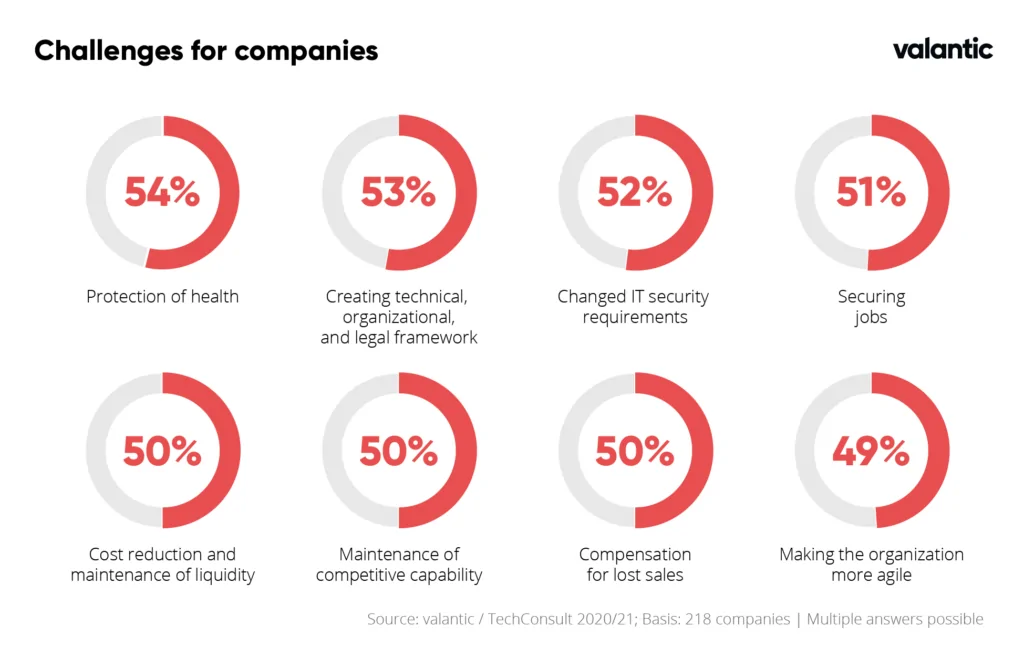
In their reaction to the crisis, the optimists far outnumber the pessimists. 46 percent have initiated new, now important digital transformation projects that had not even been on the agenda prior to the pandemic; and the proportion is even higher at SMEs with 500 to 999 employees – at 53 percent. Corona calls for decisive action and a re-evaluation of previous IT roadmaps. To free up the funds and resources needed for this, 38 percent feel compelled to postpone less-relevant projects for the time being. But only 24 percent are putting individual projects on hold indefinitely.
Among the individual sectors, the red pen is primarily being applied in retail. This is hardly surprising, since this sector, along with the hospitality industry and the private services sector, is currently being hardest hit financially.
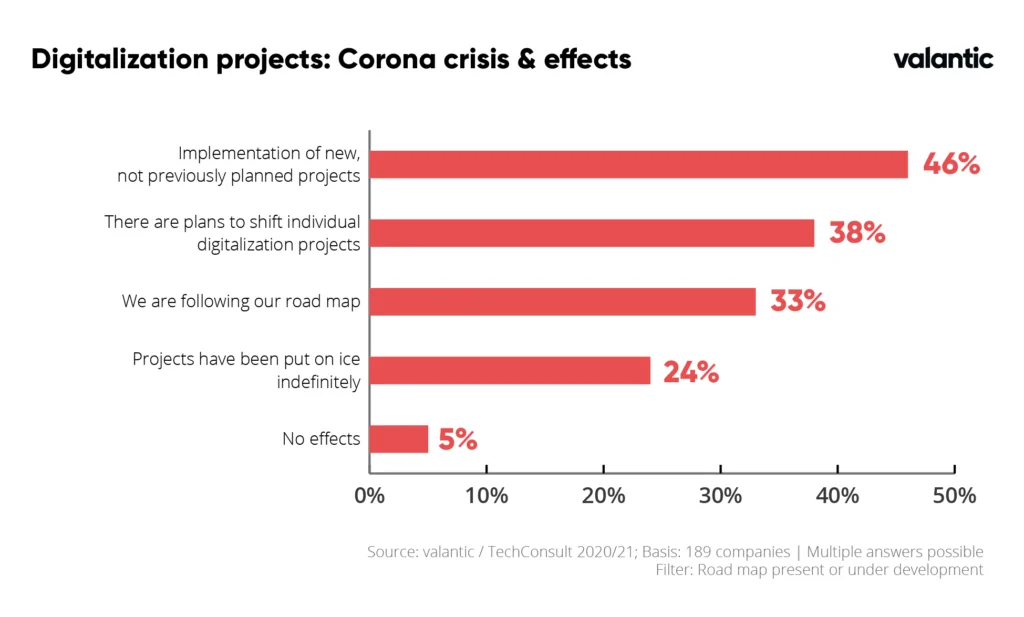
Flexible, modern ways of working such as the home office and virtual teams have become much more important due to the crisis. The classic business goal of increasing sales has receded into the background at many companies due to the focus on reducing costs. German companies are currently investing especially heavily in the digital workplace, smart communication solutions, and in the security of the IT solutions they are using, which have to confront new challenges.
Noteworthy, however, is that nearly all technology topics have become more relevant due to Corona. The before and after comparison shows: e-commerce and the optimization of logistics processes, but also – even if to a somewhat lesser extent – artificial intelligence, blockchain, and the digital twins used in product simulations have increased markedly and are much more present in the management offices of business and IT decision-makers than before the crisis. German companies are considering how they can use smart technologies to reduce their costs, minimize extra work, and increase their productivity and profitability.
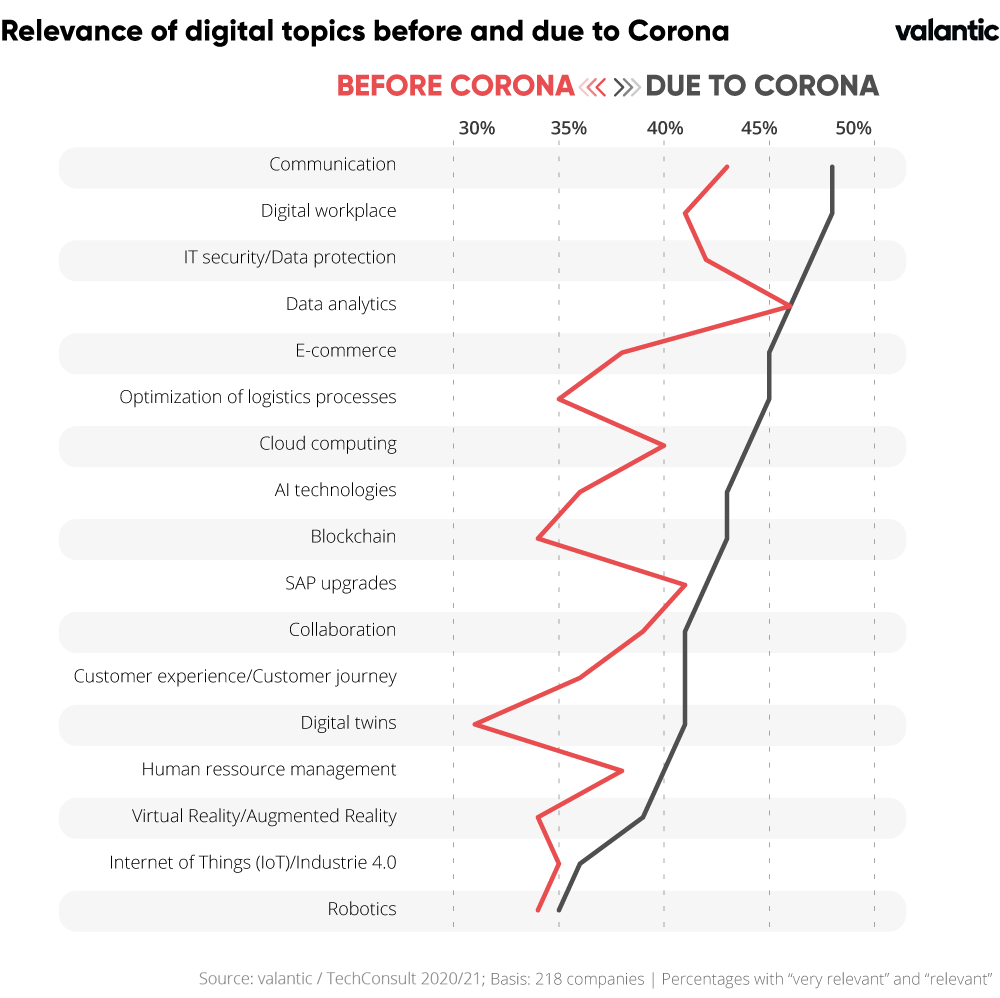
Transparency and flexibility are especially crucial in difficult times in order to be able to react quickly to challenges and especially in order to do business as profitably as possible. Optimization of supply chains has made the biggest advance in the ratings. The “corona winner” in the survey by valantic and techconsult is supply chain management.
For obvious reasons: the lockdown in spring 2020 caused many supply chains to stumble. As a result, there were shutdowns in production and bottlenecks in retail. Maintaining logistics processes is a basic requirement for many sectors. The better the logistics process – the heart of the supply chain – works, the more productive the company and the better customers’ requirements can be fulfilled with respect to quick delivery and availability of items. And this too ensures sales.
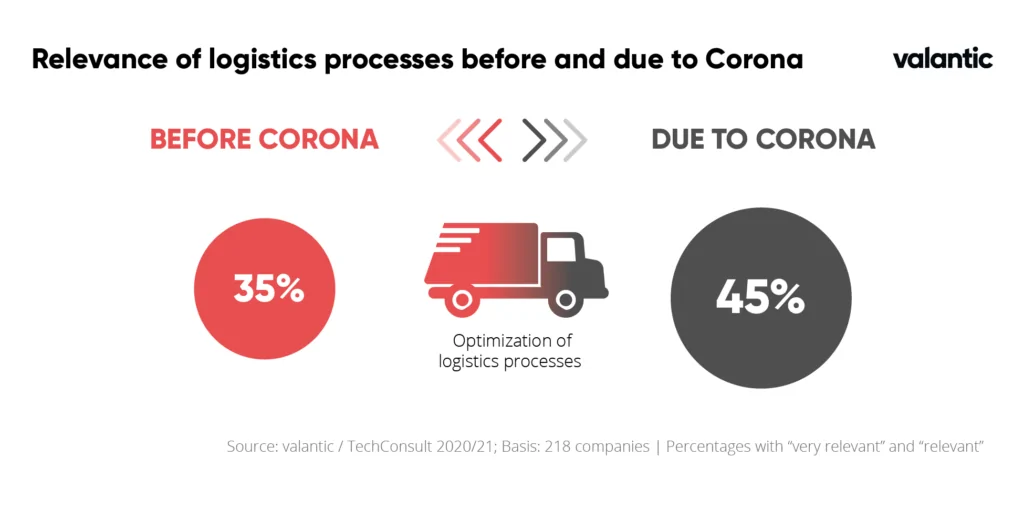
Online retail experienced a boom in 2020. On the one hand, personal customer contact was extremely restricted; on the other hand, many customers had already learned that online shopping wasn’t as complicated as many people believed. 41% of survey participants want to exploit this additional sales channel and invest more heavily in their online business in order to be better equipped for future crises. Another 41% have put optimizing their operational flows on their to-do list, and 39% are striving to increase their overall operational performance – for example, by using digitalization and automation technology.
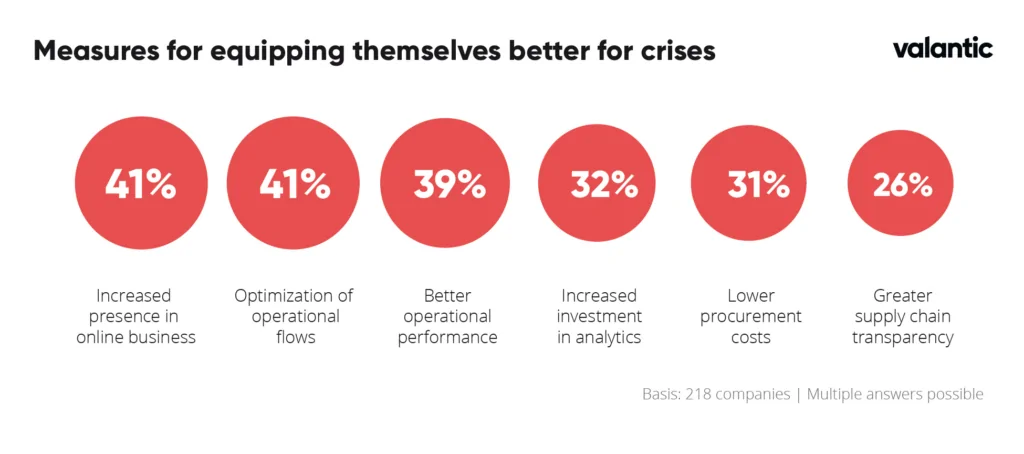
Ad hoc measures taken due to current pressure from the crisis are already producing many benefits. However, a strategically oriented, longer-term approach that anchors the digitalization projects in a company’s IT road map for the next few years can generate much more added value. Here, there is a certain need for catch-up among some of the companies surveyed by valantic and techconsult.
26% have created a road map and are already implementing it; 29% are still working on this. 20% still don’t have any strategic plan. This is a risky approach if additional challenges have to be confronted in the future and, for example, if business is to be started up as quickly as possible after the crisis is over.
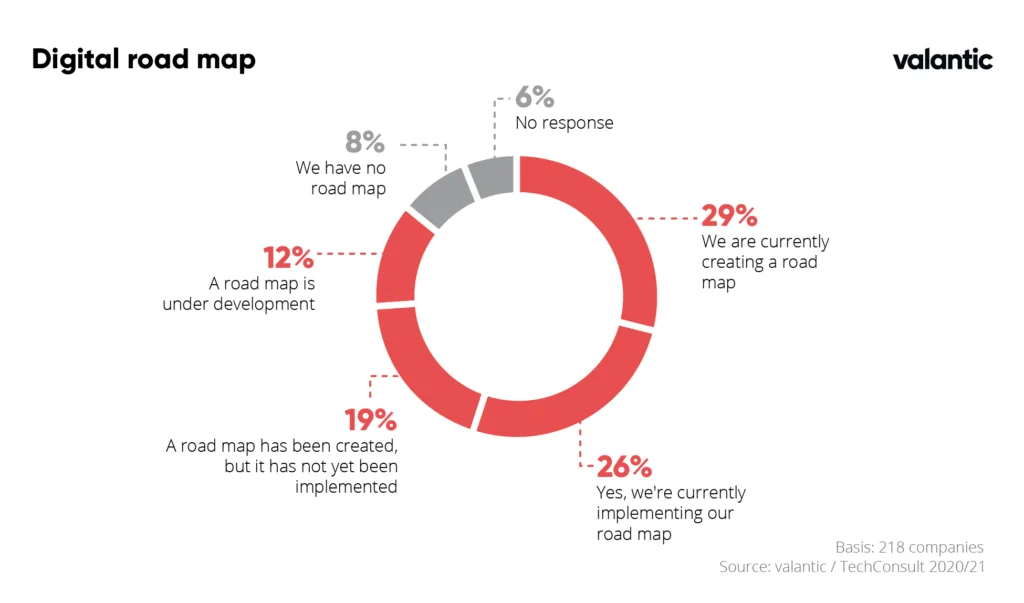
The majority of decision-makers and people responsible for projects at the companies surveyed want to undertake their IT projects jointly with external IT service providers. This constant runs like a common thread through the whole study. The implementation of measures is not a sure-fire success: 86% will obtain external help from IT service providers for the implementation of analytics applications. And for all other projects, more than two-thirds of the companies surveyed would like the support of an external IT service provider.

Download the full “Corona Redefines IT Priorities” study here.
Don't miss a thing.
Subscribe to our latest blog articles.